About the School
The business school of Duke University in Durham, North Carolina is The Fuqua School of Business. It admits 1,300 students in degree-seeking programs. In 2019, the MBA program was ranked the 9th best business school in the US by The Economist and 10th by The Financial Times in 2020. It is presently placed 6th for having the lowest acceptance rate and 10th for having the highest application yield across the top 50 MBA programs in the US.
An Overview
Rank
Class Size
Course Fee ( USD)
Course Duration (months)
Average GMAT Score
Average GRE Score
| Average Age | 28 |
| International Participants | 32% |
| Gender | 43% (Women) |
| Average Work Experience | 5.5 Years |
| Average Salary |
$135,397 |
There are 14 specializations offered by The Fuqua School of Business you can find them listed below:
- Decision Sciences
- Energy & Environment
- Energy Finance
- Entrepreneurship & Innovation
- Finance
- Financial Analysis / Accounting
- FinTech (Financial Technology)
- Leadership & Ethics
- Management
- Marketing
- Operations Management
- Operations Management
- Social Entrepreneurship
- Strategy
There are several opportunities—including merit scholarships, loans, and other programs—to help make your Fuqua Daytime MBA an actuality.
Merit Scholarships
Every admitted candidate is acknowledged for a merit scholarship. These scholarships are for the 2-year term of the MBA program and vary from partial to full tuition. We do not currently have funding for new awards in the second year, so students who enlist without scholarship funding should not expect an award for year two. For questions regarding scholarship awards or to collect more information about the scholarship review process, please reach out to your admissions counselor.
Criteria for selection:
- Prior academic achievement
- Demonstrated leadership qualities
- Involvement in the community
- Extracurricular activities
- Professional accomplishments.
How will you know if you have received a merit scholarship?
Scholarship information will be included in your electronic admission letter.
There will be more information about your scholarship and its benefits in your admitted student portal.
Named Awards
Fuqua merit scholarship recipients are automatically considered for named scholarships funded by Fuqua and corporate sponsors—you do not need to submit any additional materials to be considered. A separate selection process to award named scholarships is conducted during the summer or fall semester. Named awards replace any merit scholarships already received; they do not provide you with extra scholarship funds.
Fuqua and a variety of corporate donors fund a generous scholarship program for underrepresented minority students.
Keller Scholars
Keller Scholarships are named in honor of Dr. Thomas Keller, former Dean of Fuqua, who led The Fuqua School of Business to a position of international prominence in less than a decade. These awards, covering 100% of tuition, are funded by Fuqua, endowments, and corporate donors. The Admissions Scholarship Committee selects Keller Scholars based on academic excellence and a strong commitment to improving their communities through leadership and service.
Nearly 37% of our students are non-U.S. citizens and come from all over the world.
MBA Job Opportunities within the U.S.
Our team will help you understand the hiring landscape and effectively position yourself as a candidate in the United States. As part of your MBA experience, we work in close partnership with international student clubs, alumni, regional teams, the International Programs Office, and other departments to fully support you in your search.
U.S. Work Authorization
Following the U.S. visa regulations, it may be feasible for international students to become qualified for Duke-sponsored summer internship employment. For permanent employment after graduation, scholars without permanent U.S. work authorization may be qualified to obtain sponsorship independent of The Duke MBA program.
One on One and Career Support :
Career Fellows
Each first-year student is assigned a Career Fellow—a second-year student who serves as a mentor and guide and acts as a sounding board to coach them through the recruiting and internship process.
Specialized Clubs
Fuqua’s many career-focused clubs allow you to work on your job search with other students who are pursuing similar opportunities – so everyone becomes a stronger candidate.
Faces at Duke’s Fuqua School of Business
Notable Alumni
Duke’s Fuqua School of Business MBA Application Process
The latest application requirements set by the Duke’s Fuqua School of Business MBA admission office are described below.
You’ll need to provide your thoughts on one short-answer question and two essays as part of your application.
Instructions for all written submissions
Responses should use 1.5-line spacing and a font size no smaller than 10-point.
Do not repeat the question in the document you upload with your application.
Respond fully and concisely.
Length requirements vary by the question and are detailed below.
Responses must be completed before submitting your application.
All submissions are scanned using plagiarism detection software. Plagiarism is considered a cheating violation within the Honor Code and will not be tolerated in the admissions process.
Required short-answer essay question
Instructions: Answer the following question in 500 characters only (the equivalent of about 100 words).
What are your post-MBA career goals? Share with us your first choice career plan and your alternate plan.
First required essay: 25 random things about yourself
Instructions: Present your response in list form, numbered 1 to 25. Some points may be only a few words, while others may be longer. Your complete list should not exceed two pages.
For context: Fuqua believes different types of people, points of view, and experiences bring out the best in everyone. And above all, we place a premium on succeeding while making a positive impact on businesses, organizations, and the world. These ways of thinking set the Duke MBA experience apart, and this concept extends beyond the student body to include faculty, staff, and administration. When a new person joins the Admissions team, we ask that person to share with everyone in the office a list of “25 Random Things About Yourself.” As an Admissions team, we already know the new hire’s professional and academic background, so learning these “25 Random Things” helps us get to know someone’s personality, background, special talents, and more.
In this spirit, the admissions committee also wants to get to know you–beyond the professional and academic achievements listed in your resume and transcript. You can share with us important life experiences, your likes/dislikes, hobbies, achievements, fun facts, or anything that helps us understand what makes you who you are. Share with us your list of “25 Random Things” about YOU.
The second required essay: The Fuqua community and you
Instructions: Your response should be no more than 300 words.
Fuqua prides itself on cultivating a culture of engagement. Our students enjoy a wide range of student-led organizations that provide opportunities for leadership development and personal fulfillment, as well as an outlet for contributing to society. Our student-led government, clubs, centers, and events are an integral part of the student culture and are vital to providing you with a range of experiential learning and individual development experiences.
Based on your understanding of the Fuqua culture, what are the three most meaningful ways you expect to engage and contribute to our community outside of the classroom?
Optional essay: Tell us more
If you feel there are circumstances in which the admissions committee should be aware (such as unexplained gaps in work, choice of recommenders, inconsistent or questionable academic performance), please explain them in an optional essay.
Please do not upload additional essays or additional recommendations in this area of the application, and limit your response to one page.
| Rounds | Application Deadlines |
|---|---|
| Round 1 | Oct 20, 2020 |
| Round 2 | Jan 7, 2021 |
| Round 3 | Mar 25, 2021 |
Want to know more about the MBA Application Deadlines for Top B-Schools? Here’s the entire list of top B-Schools along with their deadlines – MBA Application Deadlines 2020-2021
Your recommenders must finish the prevailing recommendation forms affiliated with the online application—no other format of recommendation will be admitted.
At least one recommendation should exhibit your performance in your latest professional background. Volunteer ventures or other service-oriented tasks in which you are deeply involved may also be wonderful sources for recommendations. The most relevant recommendations come from people who know your professional skills and abilities.
Submissions by email or mail are not affirmed.
New applicants:
- One required letter of recommendation
- One optional letter of recommendation Re-applicants
- One brand-new recommendation letter (not from a former recommender)
Other recommendation guidelines:
- You are needed to use the recommendation forms that are within the online application.
- Use recommenders’ business email addresses rather than private accounts like Gmail, which will be more strictly observed in our credential verification process.
- Recommendations from relatives and friends are highly discouraged.
- Academic recommendations often provide a similar aspect to your transcript and are less valuable.
Tips for recommendation letters
- Who can give a recommendation: You will have to give aspects of one recommender who can be your reporting manager/ previous manager/ senior colleague/ current client/ previous client/ business partner/ supplier/ auditor etc.
- It should not be a collection of adjectives. The recommender should add particular instances/examples of your professional experience together.
- Academic recommendations ( from professors/teachers etc) are invalid
- The recommender should submit the recommendation from the professional email id only. If the recommender does not have an official id – then evidence that you reported / or was supervised by this person should be attached.
- Go by the quality of the evaluation rather than the seniority of the designation
The following questions are included in the recommendation form:
- Comment briefly on the context of your interaction with the applicant.
- How do the applicant’s performance, potential, or personal qualities compare to those of other well-qualified individuals in similar roles?
- What do you perceive as the applicant’s areas for growth?
- Describe the applicant’s awareness of these areas and his/her response to constructive feedback.
- Please include additional comments you feel will be helpful to the admissions committee.
Top Recruiters
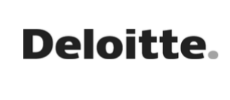
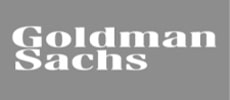


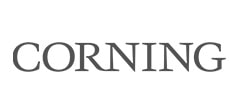
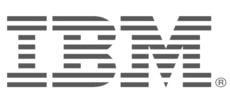
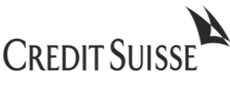
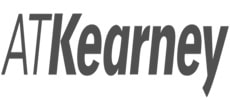
Useful Links
| Admission Info | How to Apply | Meet Duke Fuqua | Do Your Research |
|---|---|---|---|
| Admissions | Application Instructions | Student Blog | D.F Insights |
| MBA Programs | Admission Dates | Events | About |
| Student Network |





